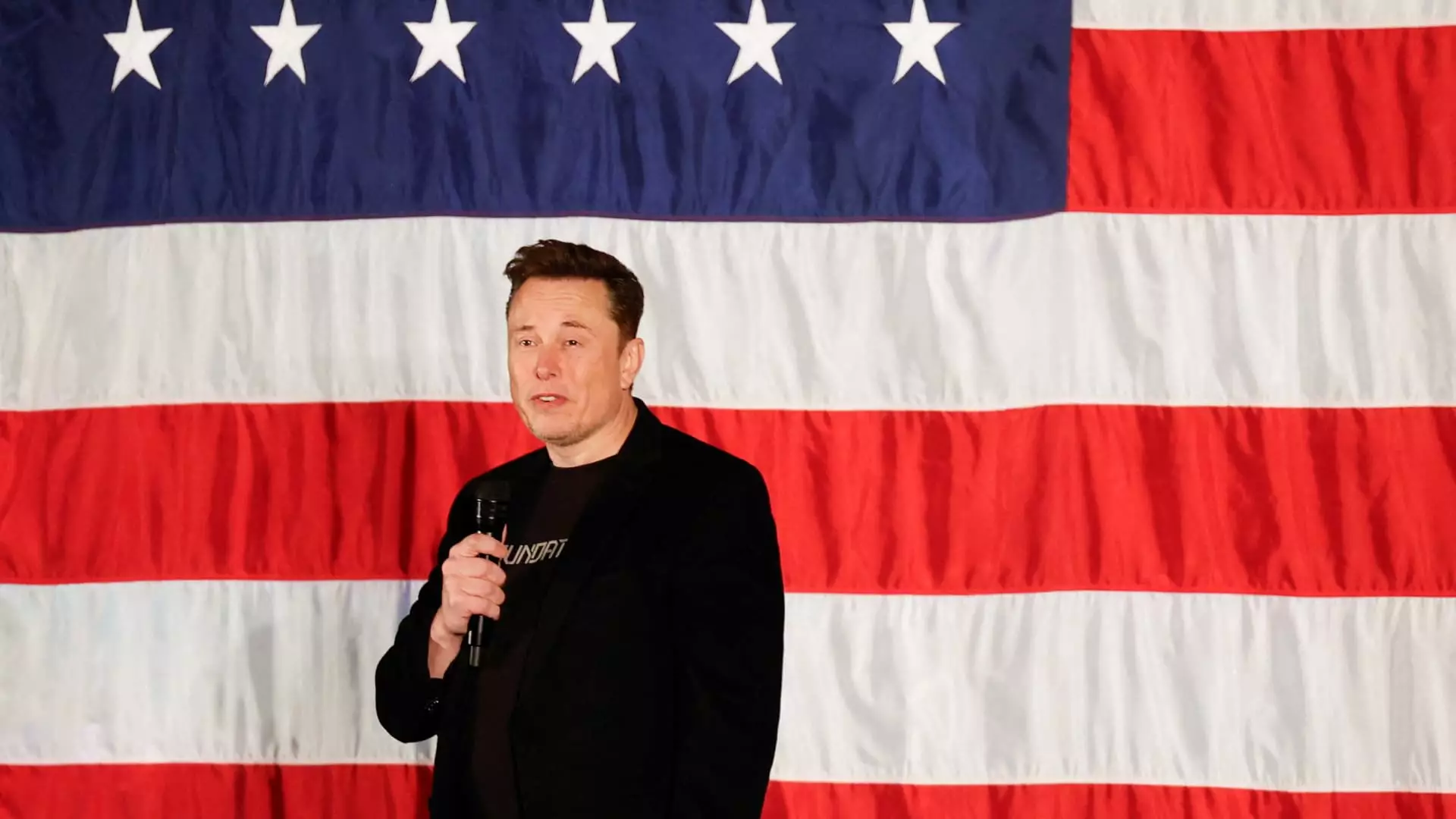In a recent turn of events, a federal court in Pennsylvania has relinquished a high-profile lawsuit concerning billionaire Elon Musk and his political action committee (PAC) back to state jurisdiction. This legal battle, which stems from Musk’s eye-catching initiative to give away $1 million daily to registered voters, has sparked significant controversy, particularly among legal and political spheres. Central to the lawsuit brought forth by Philadelphia District Attorney Larry Krasner is the allegation that Musk’s PAC is engaging in an unlawful lottery while attempting to sway the electoral process in favor of Donald Trump amid a contentious presidential race against Kamala Harris.
Krasner’s assertions against Musk and his America PAC are severe, claiming that the financial giveaways constitute an illegal lottery. Lottery laws typically stipulate that such games require a license and adherence to specific regulations, aimed predominantly at ensuring a fair and transparent process. Moreover, there are accusations that the PAC’s actions potentially violate state consumer protection regulations, raising the stakes considerably. If these allegations are upheld in court, not only could the giveaways face an immediate halt, but Musk and his PAC could also face substantial penalties for their actions.
The lawsuit underscores a deeper concern regarding the ethics of financial incentives used to influence voter behavior during an election season. By proposing rewards to voters in critical swing states like Pennsylvania, the implications of this strategy evoke urgent questions about the boundaries of acceptable political campaigning and the inherent risks of manipulative practices.
In what has been described as a strategic maneuver, Musk’s legal team sought to reframe the lawsuit in federal court, likely in hopes of a more favorable ruling. However, U.S. District Judge Gerald Pappert decisively rejected this argument, citing the absence of federal legal questions that necessitated federal jurisdiction. Pappert’s ruling emphasized that the legal issues at play originate from state law, which severely undermined Musk’s attempt to navigate the suit away from the scrutiny of Pennsylvania’s judicial system.
Krasner’s office welcomed Pappert’s ruling, suggesting that it aligns with their position that Musk’s expedited efforts to shift the case to federal court were unfounded and contrary to established legal precedent. This highlights a clash not only of legal strategies but also of interpretations of law itself, as Musk and Krasner find themselves on opposing sides of a deeply politically charged dispute.
With the case now returned to the Court of Common Pleas, the expectation is that Krasner’s office is preparing to swiftly seek an injunction that would block Musk from continuing his lottery giveaways. As legal preemption remains a critical point of contention, the timeline for the hearing is anticipated with great interest by both legal analysts and the broader electorate, given the stakes involved in this electoral gamble.
On October 19, Musk declared his intent to distribute substantial amounts of cash daily to incentivize voter registration in key electoral areas, a move that has been met with skepticism amidst Krasner’s litigation. This entire saga reveals the intricate balancing act within electoral campaigning—where financial allure exists alongside stringent legal frameworks designed to protect the integrity of the democratic process.
In concluding this examination of Musk’s controversial initiative and the ensuing legal fight, it is vital to reflect on the broader implications for campaign ethics and electoral regulations. While the ability to engage and incentivize voters is a common goal for political entities, the manner in which these methods are employed can significantly impact public trust in the electoral system. As this situation unfolds in Pennsylvania, it is imperative that all stakeholders—voters, legal practitioners, and political figures—remain vigilant about the importance of maintaining integrity within the electoral process. Ultimately, this legal battle may serve as a precedent concerning the limits of innovation in political campaigning and the protection of voters’ rights against potentially unethical influences.

